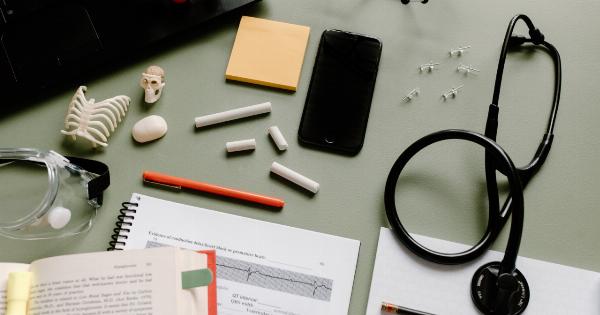Antidepressants are a class of medications that are prescribed to treat various mental health disorders.
These medications affect the balance of certain brain chemicals called neurotransmitters, which play a crucial role in regulating mood, emotions, and cognitive processes. In this article, we will explore the science behind antidepressants and the changes they induce in the brain.
What are Antidepressants?
Antidepressants are medications that are used to treat a variety of mental health disorders, including depression, anxiety, obsessive-compulsive disorder, post-traumatic stress disorder, and more.
These medications are available in different types and formats, including tablets, capsules, liquid form, or injections.
The main function of antidepressants is to target specific neurotransmitters in the brain that are responsible for regulating mood and emotions. These neurotransmitters include serotonin, norepinephrine, and dopamine.
By altering the balance of these neurotransmitters, antidepressants can reduce symptoms of depression, anxiety, and other mental health conditions.
How do Antidepressants Work?
Antidepressants work by changing the balance of neurotransmitters in the brain. The exact way that each type of antidepressant works varies depending on the medication, but the most common types of antidepressants target three main neurotransmitters:.
Serotonin
Serotonin is a neurotransmitter that is involved in regulating mood, sleep, and appetite. Low levels of serotonin are often associated with depression and other mental health conditions.
Antidepressants that target serotonin include selective serotonin reuptake inhibitors (SSRIs) and serotonin-norepinephrine reuptake inhibitors (SNRIs). These medications work by inhibiting the reuptake of serotonin in the brain, allowing more of the neurotransmitter to be available for use.
Norepinephrine
Norepinephrine is a neurotransmitter that is involved in regulating the “fight-or-flight” response in the body. Low levels of norepinephrine have been associated with depression and other mental health conditions.
Antidepressants that target norepinephrine include tricyclic antidepressants (TCAs) and SNRIs. These medications work by inhibiting the reuptake of norepinephrine in the brain, allowing more of the neurotransmitter to be available for use.
Dopamine
Dopamine is a neurotransmitter that is involved in regulating motivation, reward, and pleasure. Low levels of dopamine have been associated with depression and other mental health conditions.
Antidepressants that target dopamine include bupropion, which works by increasing the levels of dopamine in the brain.
What are the Side Effects of Antidepressants?
Like any medication, antidepressants can have side effects. The side effects that are associated with antidepressants vary depending on the type of medication and the dosage. Some of the most common side effects of antidepressants include:.
- Nausea and vomiting
- Dizziness
- Headaches
- Dry mouth
- Sweating
- Insomnia or drowsiness
- Changes in appetite and weight gain or loss
In some cases, antidepressants can also lead to sexual dysfunction, such as decreased libido or difficulty achieving orgasm. However, not all individuals experience side effects and those who do may find that the side effects diminish over time.
Antidepressants and Brain Changes
The use of antidepressants has been associated with changes in the structure and function of the brain.
These changes can be seen on brain scans and are thought to be responsible for the effectiveness of these medications in treating mental health conditions.
The Hippocampus
The hippocampus is a part of the brain that is involved in regulating memory, learning, and emotions. Studies have shown that people with depression have smaller hippocampal volumes compared to those without depression.
Antidepressants, particularly SSRIs, have been shown to increase the size of the hippocampus in people with depression. This increase in hippocampal volume is thought to be responsible for the antidepressant effect of these medications.
The Prefrontal Cortex
The prefrontal cortex is a part of the brain that is involved in regulating decision-making, problem-solving, and emotional regulation. People with depression have been shown to have decreased activity in the prefrontal cortex.
Antidepressants, particularly SSRIs, have been shown to increase activity in the prefrontal cortex in people with depression. This increase in prefrontal cortex activity is thought to be responsible for the antidepressant effect of these medications.
The Amygdala
The amygdala is a part of the brain that is involved in regulating emotions, including fear and anxiety. Studies have shown that people with depression have increased activity in the amygdala.
Antidepressants, particularly SSRIs, have been shown to decrease activity in the amygdala in people with depression. This decrease in amygdala activity is thought to be responsible for the anxiety-reducing effect of these medications.
The Bottom Line
Antidepressants are medications that are used to treat a variety of mental health conditions, including depression, anxiety, and PTSD.
These medications work by altering the balance of neurotransmitters in the brain, which can lead to changes in brain structure and function. The effectiveness of antidepressants is thought to be due to these changes in the brain. However, antidepressants are not a cure for mental health conditions and should always be used in combination with therapy and lifestyle changes.






























